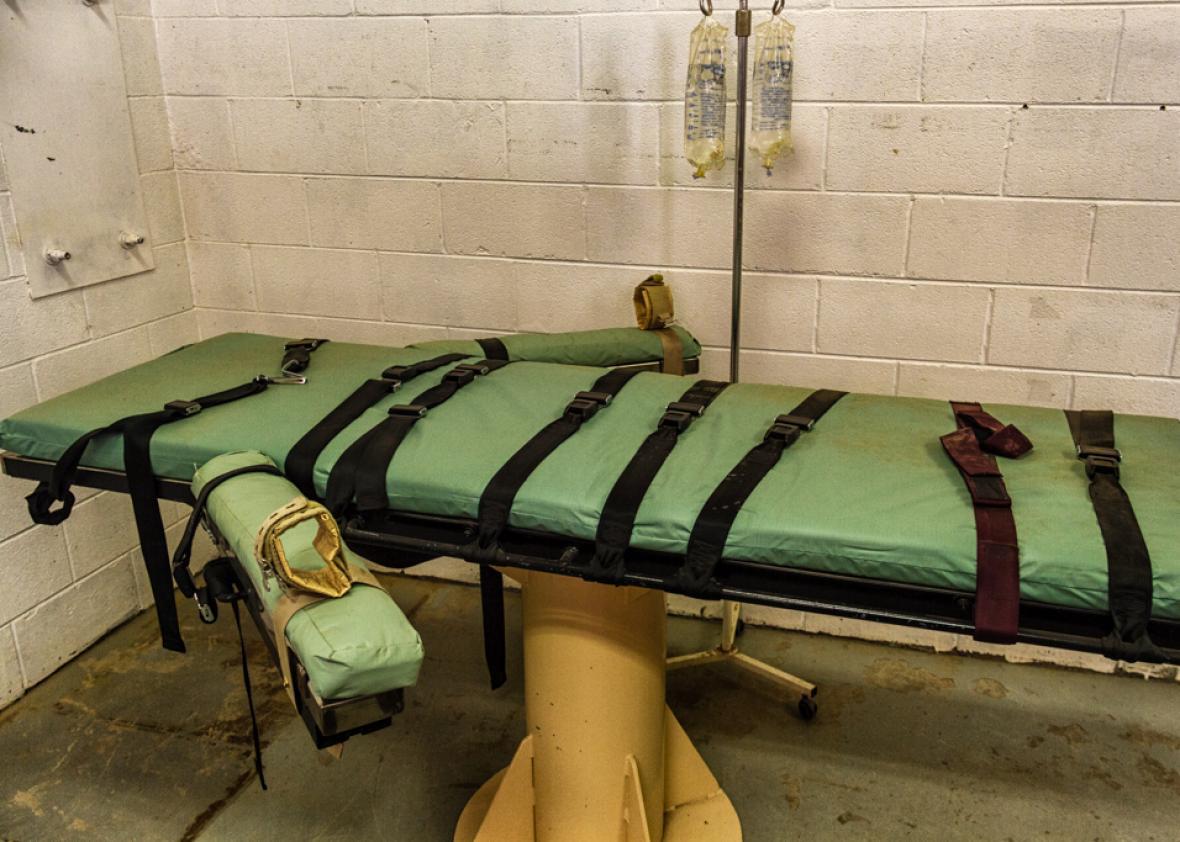Lawmakers in Virginia are getting close to solving their pesky death penalty problem. After being blocked on a proposal to bring back the electric chair as a way to get around the reluctance of drug manufacturers to supply state governments with lethal injection drugs, Virginia’s House and Senate have both voted to accept Gov. Terry McAuliffe’s counteroffer: making it possible for companies to sell Virginia the ingredients necessary for chemical execution in secret, thus protecting them from public scrutiny and criticism.
The measure, which has been condemned from commentators on the left and the right as an affront to the principles of government transparency, promises that “the identities of any pharmacy or outsourcing facility that enters into a contract” to provide lethal injection drugs to the Virginia Department of Corrections “shall be confidential.” In an interview with ABC News on Monday, a spokesman for the governor referred to the proposal as “the only practical way” for Virginia to obtain the drugs it needs to execute the seven people currently on death row in the state.
In an earlier interview with the AP, McAuliffe explained the stakes of the situation, saying that if lawmakers voted down his idea, they would be bringing “the death penalty to an end here in Virginia.”
According to the Death Penalty Clinic at the UC–Berkeley Law School, there are at least 12 other states that have laws granting anonymity to death penalty drug manufacturers: Arizona, Arkansas, Florida, Georgia, Louisiana, Missouri, North Carolina, Ohio, Oklahoma, South Dakota, Tennessee, and Texas.
According to the Richmond Times-Dispatch, the Republican-controlled House initially rejected McAuliffe’s version of the death penalty bill by a 47–51 vote, but on a second vote, 13 Republicans changed their mind and the measure passed. The Senate voted 22–16 in favor of the measure shortly thereafter.
The bill now heads back to McAuliffe’s office, where he is expected to sign it into law.
